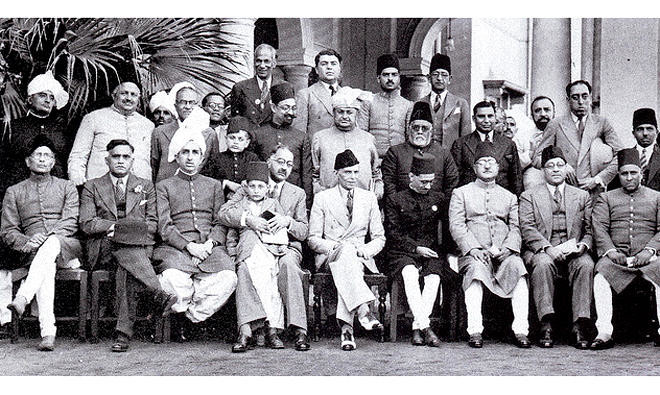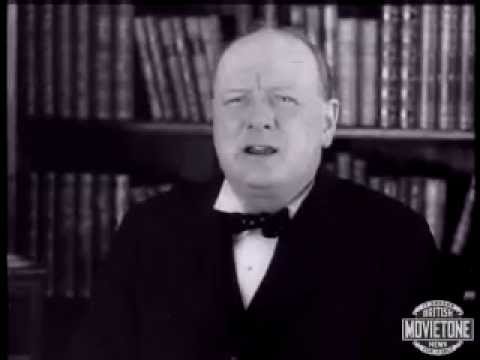Time and again it has been contended with much vehemence that a united India would have been more beneficial for the Muslims of India. It is not more than an after thought, devoid of historical analysis, based merely upon whimsical interpretation of the post Partition events.
It is my conviction that keeping in view the pre Partition events, the Partition of India and making of Pakistan was the best option available to the Muslims of the Subcontinent. The Hindu Muslim coexistence as equals was impossible in a United India. And this was and is obvious to anyone who have studied the pre Partition history of the Subcontinent. Whenever the Hindus got their say in matters concerning Muslims, they made sure that the Muslims got the worst deal. Allah Ta’aala says in the Holy Qur’an:
كَيْفَ وَإِن يَظْهَرُوا۟ عَلَيْكُمْ لَا يَرْقُبُوا۟ فِيكُمْ إِلًّۭا وَلَا ذِمَّةًۭ ۚ يُرْضُونَكُم بِأَفْوَٰهِهِمْ وَتَأْبَىٰ قُلُوبُهُمْ وَأَكْثَرُهُمْ فَـٰسِقُونَ
How (can they have a treaty) while if they overcome you, they will not observe any bond or treaty with you. They want to please you with (words of) their mouths, but their hearts refuse. Most of them are sinners.
Surah At-Tawbah: 8
I’ll jot down significant events that inform and endorse my conviction.
1. Partition of Bengal: The Encyclopedia Britannica has this to say
partition of Bengal, (1905), division of Bengal carried out by the British viceroy in India, Lord Curzon, despite strong Indian nationalist opposition……..
East Bengal, because of isolation and poor communications, had been neglected in favour of west Bengal and Bihar………
The Hindus of west Bengal, who controlled most of Bengal’s commerce and professional and rural life, complained that the Bengali nation would be split in two, making them a minority in a province including the whole of Bihar and Orissa……….
Agitation against the partition included mass meetings, rural unrest, and a swadeshi (native) movement to boycott the import of British goods……….
In 1911, the year that the capital was shifted from Calcutta (now Kolkata) to Delhi, east and west Bengal were reunited……..
The aim was to combine appeasement of Bengali sentiment with administrative convenience. This end was achieved for a time, but the Bengali Muslims, having benefitted from partition, were angry and disappointed.
Britannica, The Editors of Encyclopaedia. “partition of Bengal”. Encyclopedia Britannica, 4 Feb. 2009, https://www.britannica.com/event/Partition-of-Bengal. Accessed 17 July 2022.
2. Shuddhi and Sanghatan
The 1920s in United Provinces were marked by a growing movement of Hindu reformist, religious and communal organisations. The community and nation making discourse of the Arya Samaj and the Hindu Mahasabha launched the programme of shuddhi and sangathan on a large scale in 1923 in the region………
Sangathan was the answer of the militant Hindu organisations to consolidate the Hindus.
Charu Gupta, Articulating Hindu Masculinity and Femininity: Shuddhi and Sangathan Movements in United Provinces in the 1920s
One of the most salient developments in the 1920s was the launching of the shuddhi movement by the Arya Samaj to bring into the Hindu fold various groups considered outside the pale of what had now come to be defined as ‘Hinduism’, including untouchables and, later, Muslim, Christian and even Sikh communities.
Muslim reactions to the shuddhi campaign in early twentieth century North India
By Yoginder Sikand
The campaign developed with remarkable speed and spread rapidly from Agra to Muthra and Aligarh and neighbouring districts. By May the shuddhi enthusiasts claimed no less than 18,000 converts in Agra and the neighbourhood.31 Another government record stated, “Swami Shraddhanand and his lieutenants threw themselves into the struggle with great zeal to bring back the Muslims in Agra to the fold of Hindu religion…that as many as 300 converts had been obtained form one village alone”.32
Charu Gupta, Articulating Hindu Masculinity and Femininity
More than 30,000 Malkana rajputs were stated to have been converted by the end of 1923 itself and in 1927, it was reported that more than 1,63,000 Malkanas had entered the Hindu fold.33
3. Nehru Report:
The report was not acceptable to Muslims and both the Muslim members of the Committee did not sign it. Syed Ali Imam, due to bad heath could not attend the meetings of the Committee while Shoaib Qureshi refused to sign the repot. In the fourth session of the All Parties Conference convened in December to review the Nehru Report, Jinnah representing the Muslim League presented following four amendments in the report:
There should be no less than one-third Muslim representation in the Central Legislature.
In event of the adult suffrage not being established, Punjab and Bengal should have seats reserved for the Muslims on population basis.
The form of the constitution should be Federal with residuary powers vested in the provinces.
Sind should immediately be made a separate province and the reforms should also be introduced in NWFP and Balochistan at the earliest.
Jinnah’s proposals were rejected when put to vote in All Parties Conference. The Congress managed to get the majority vote in favour of the Report.Nehru Report (1928)
4. Congress Ministries (1937-39)
a. Wardha Scheme: Compulsory education for seven years in Hindi and mandatory bowing before picture of Mr Gandhi.
The majority of their [Muslims’] grievances from early 1938 onwards according to government’s own assesment “related to the Education Department and the foremost of them was the Vidya Mandir Scheme” with additional complaints over the neglect of Urdu and compulsory participation in the singing of “Vande Mataram”.
Muslim Response to the Educational Policy of the Central Provinces and Berar Government (1937 – 1939)
5. Cabinet Mission Plan (1946):
The Plan was:
The Cabinet Mission Plan provided that only three subjects would belong compulsorily to the Central Government. These were Defence, Foreign Affairs and Communications, which I had suggested in my scheme. The Mission however added a new element to the Plan. It divided the country into three zones, A, B and C, as the members of the Mission felt that this would give a greater sense of assurance to the minorities. Section B would include the Punjab, Sind, the N.W.F.P. and British Baluchistan. This would corutitute a Muslim majority area. In Section C, which included Bengal and Assam, the Muslims would have a small majority over the rest.
India Wins Freedom, Orient Longmans, 1959, p 149
The Muslim League accepted the Plan.
He [Jinnah] told the Council that the scheme presented by the Cabinet Mission was the maximum that he could secure. As such, he advised the Muslim League to accept the scheme and the Council voted unanimously in its favour.
India Wins Freedom, p 150
Congress also accepted the Plan but then Jawaharlal Nehru went back on this decision. Abul Kalam Azad after regretting making Nehru the president of Congress, writes
Now happened one of the unfortunate events which changed the course of history. On 10 July, Jawaharlal held a Press Conference in Bombay in which he made a statement which in normal circumstances might have passed almost unnoticed, but in the existing atmosphere of suspicion and hatred, set in train a most unfortunate series of consequences. Some Press representatives asked him whether with the passing of the Resolution by A.I.C.C., the Congress had accepted the Plan in toto, including the composition of the interim Government.
Jawaharlal stated in reply that Congress would enter the Constituent Assembly ‘completely unfettered by agreements and free to meet all situations as they arise.’
India Wins Freedom, pp 154-155
Press representatives further asked if this meant that the Cabinet Mission Plan could be modified.
Jawaharlal replied emphatically that the congress had agreed only to participate in the constituent Assembly and regarded itself free to change or modify the Cabinet Mission Plan as it thought best.
The above list is by no means exhaustive but captures the communal ethos of pre Partition India, which was evident even to Winston Churchill. He says in 1931 in his speech about the Hindu Muslim communal divide that
If you took the antagonisms of France and Germany, and the antagonisms of Catholics and Protestants, and compounded them and multiplied them ten-fold, you would not equal the division which separates these two races intermingled by scores of millions in the cities and plains of India.
Winston S Churchill – Never Give In – The Best of Winston Churchill’s Speeches, Pimlico, 2004, pp 97-99







